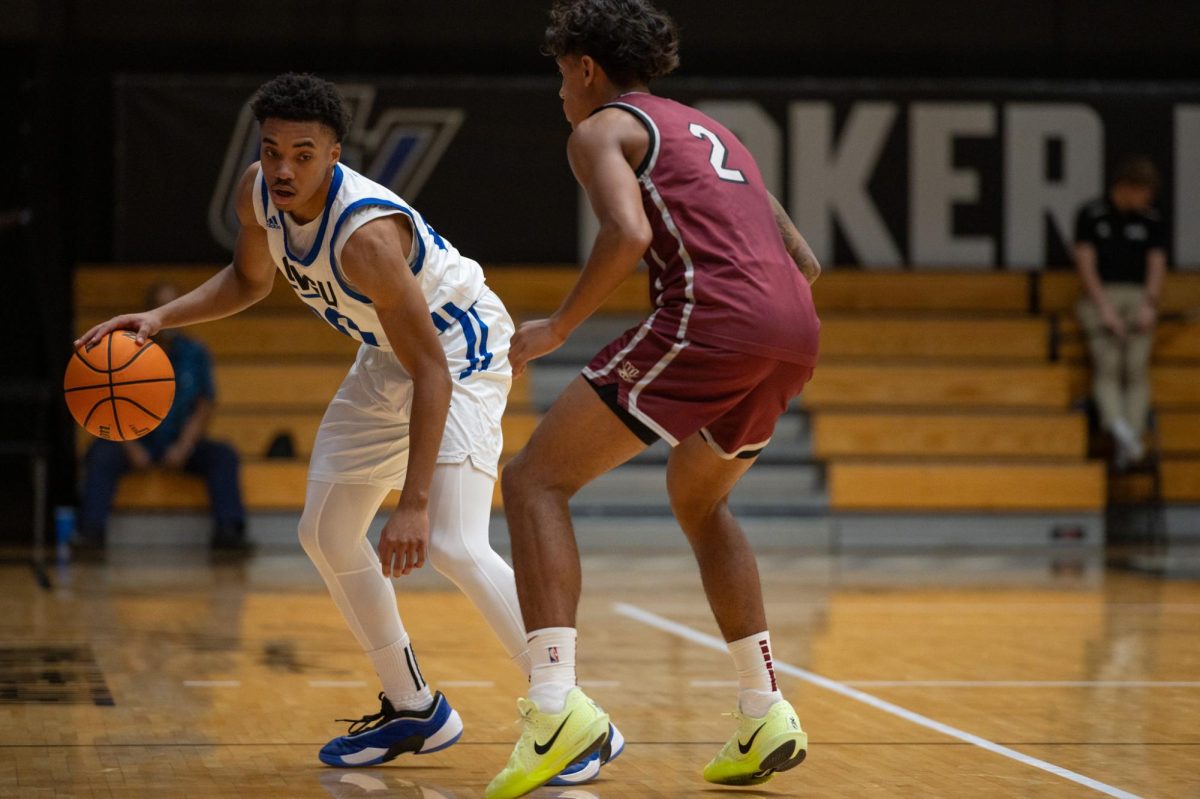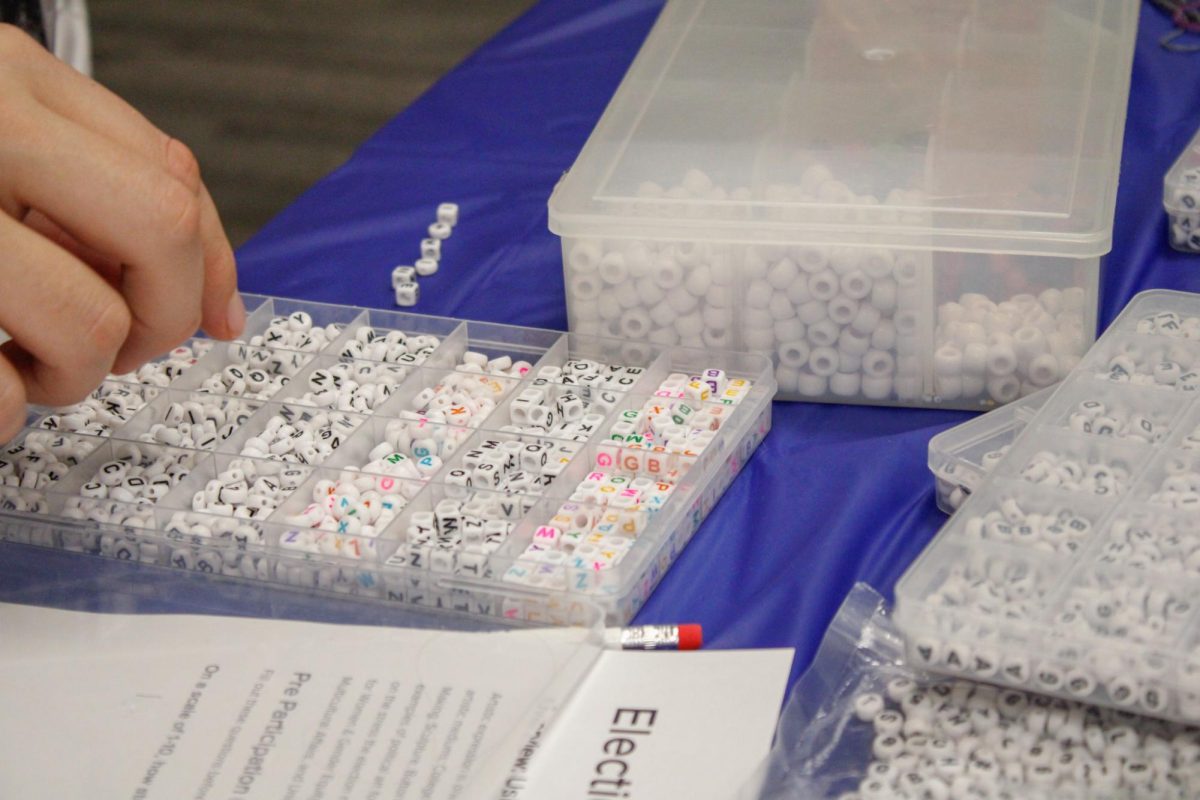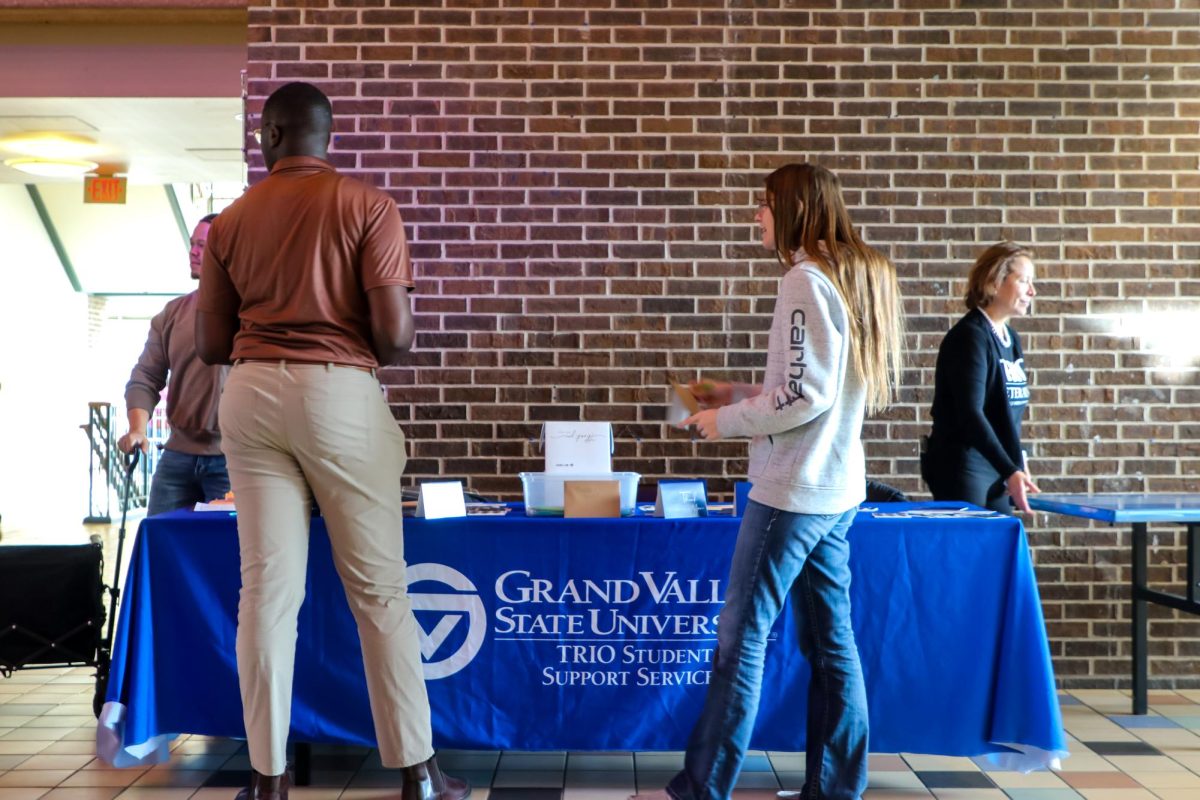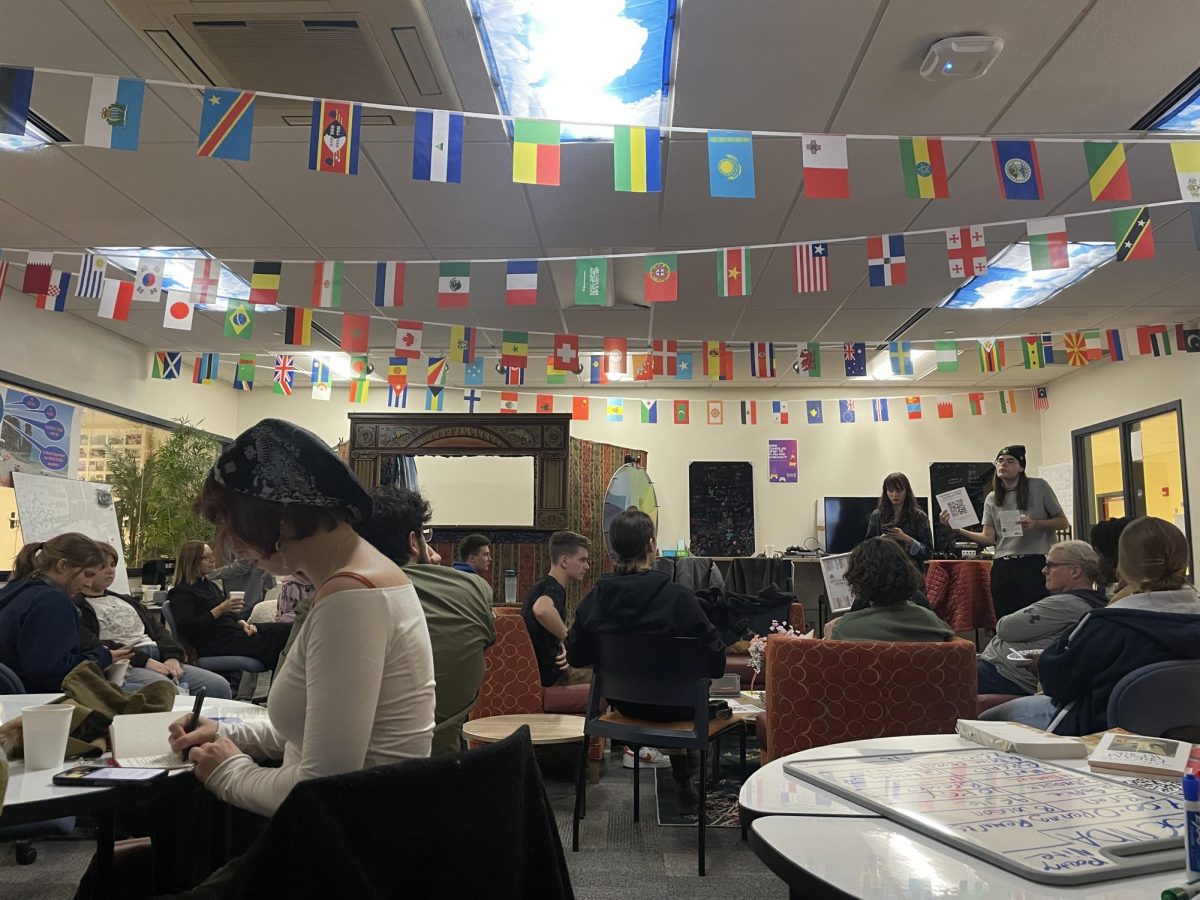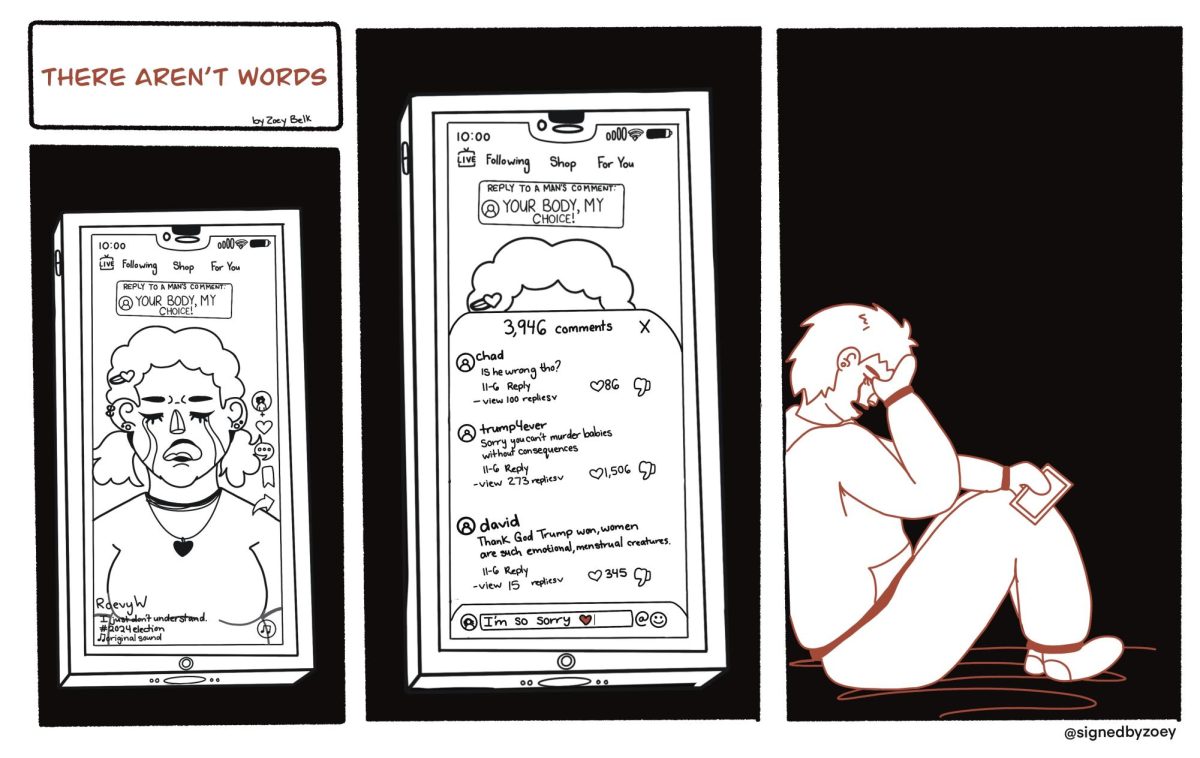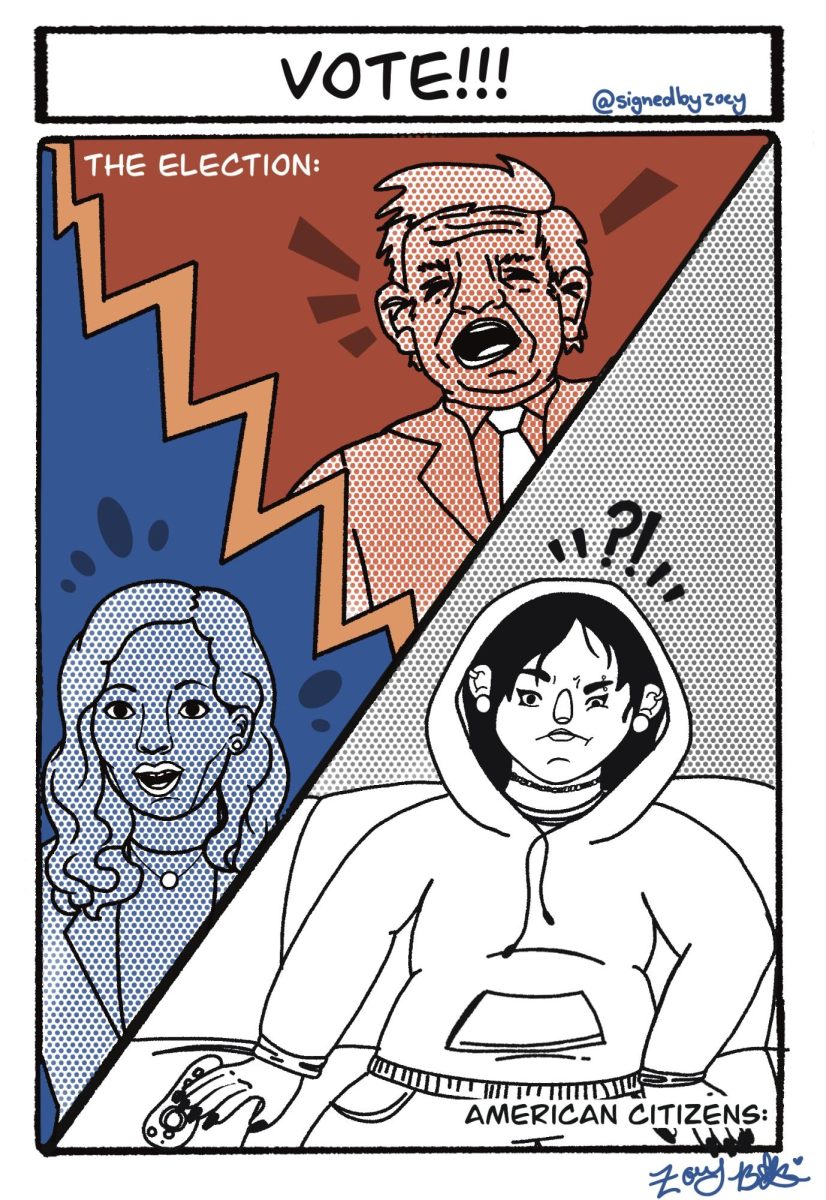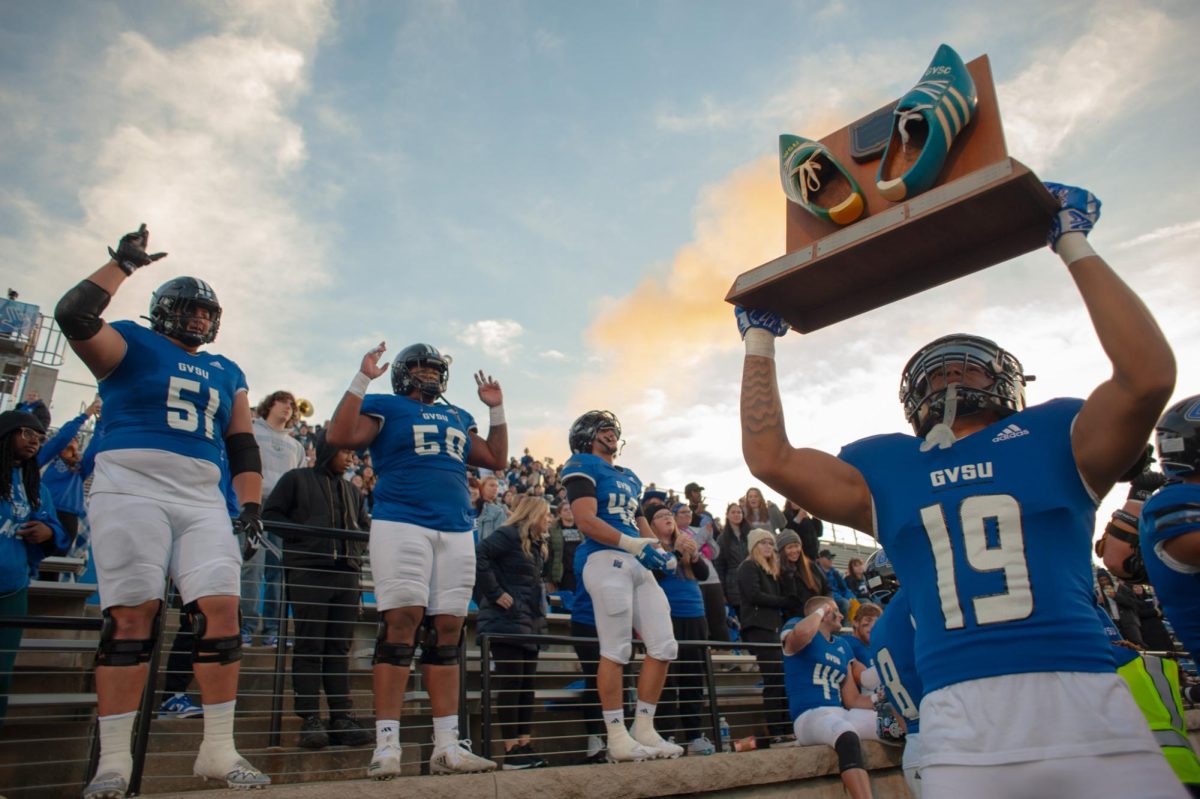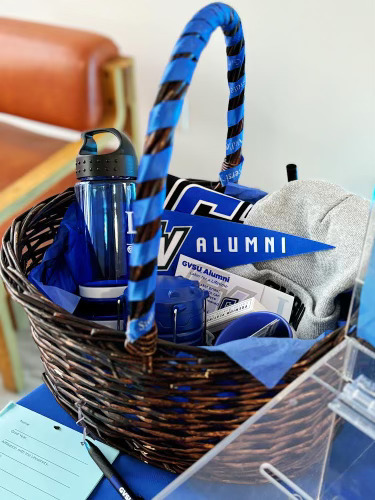Library exhibit raises awareness about sexual assault
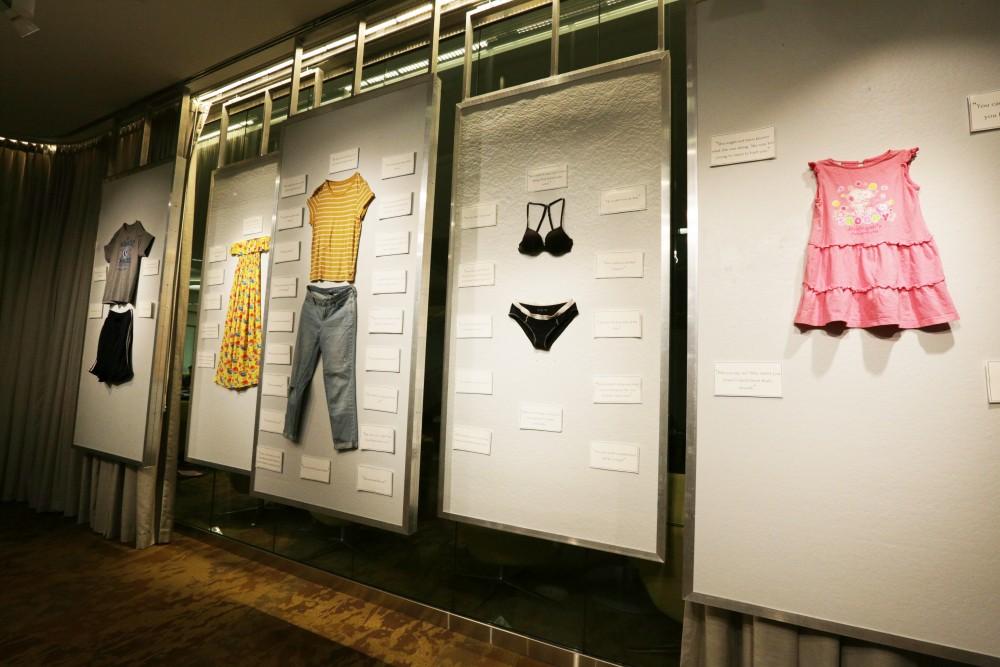
GVL / Emily Frye “What were you wearing” exhibit in the multipurpose room on Wednesday March 21, 2018.
Mar 22, 2018
Like many universities, Grand Valley State University has seen its fair share of sexual assault. First-year organization It’s on Us as Lakers is striving to bring attention to the issue and eradicate victim blaming with the implementation of the “What Were You Wearing?” exhibit.
The exhibit is made up of outfits that represent what women were wearing at the times of their assaults with the intention of conveying that clothing, however much or little a woman is wearing, does not matter when it comes to assault.
The exhibit is being featured in the Mary Idema Pew Library Exhibition Space until Sunday, April 1.
The exhibit is based on the University of Arkansas’ traveling exhibit going by the same name. It’s on Us as Lakers member Madeline Vervaeke said the inspiration came from social media as well as other Michigan universities, most notably the University of Michigan. After seeing other universities partaking in the initiative, the members of It’s on Us as Lakers decided to bring the exhibit to GVSU but with a focus on West Michigan statistics.
“No matter what campus you’re on, unfortunately (sexual assault) has happened or it’s going to happen,” said Michelle Roldan, founder of It’s on Us as Lakers. “I think people don’t know how truly prevalent it is. That’s why we wanted more West Michigan data because it’s like, this could be one of your fellow Lakers.”
To gain a perspective on the western region of the state, It’s on Us as Lakers invited nine universities to contribute data and statistics from their own cities. Institutions that replied and contributed include Cornerstone University, Aquinas College and Hope College.
The organization also extended invitations to survivors of sexual assault to describe what they were wearing at the time of the assault, and they worked collaboratively to recreate the outfits for the exhibit.
“I think just by looking at the outfits in general—we got over a hundred responses—and most of them, they’re wearing jeans and a T-shirt, leggings and a T-shirt, sweatpants,” Vervaeke said. “So, it’s not at all what you would expect people to be wearing if they were assaulted.”
While the organization did not ask for the exact clothing from the events, Roldan said a few anonymous donors offered to contribute their outfits from when they were sexually offended.
It’s on Us as Lakers hopes the exhibit will be a catalyst for critical conversations about the topic of assault on campus and consent in general.
“I think everyone should know how prevalent this (rape culture) is and understanding the stigmas behind it and just being able to talk about it because nobody wants to talk about it,” Vervaeke said. “That’s our big thing is being comfortable talking about it.”
Moreover, Roldan said engaging in conversations about giving and receiving consent may be awkward for people but that it is incredibly important.
“Being comfortable talking about consent, talking about how should you have sex with someone, people are always like, ‘That’s my business’ or ‘I don’t want to kill the mood,’” she said. “But there’s no such thing as killing the mood when you’re giving and getting consent.”
It’s on Us as Lakers is prepping for the upcoming Sexual Assault Awareness Week, which will be kicked off with an event called “Survivors Speak,” a panel of sexual assault survivors who will talk about their experiences on Monday, April 2.













